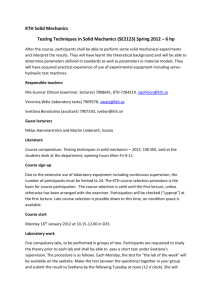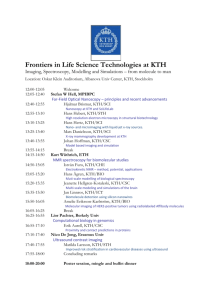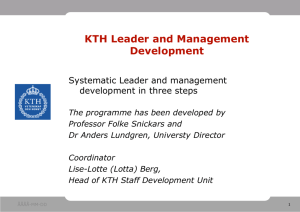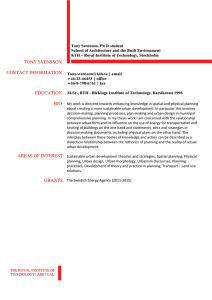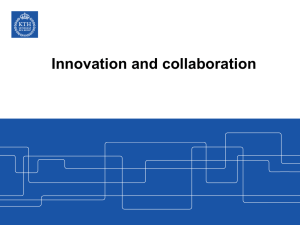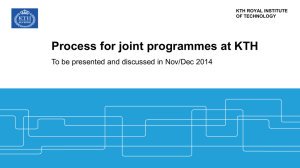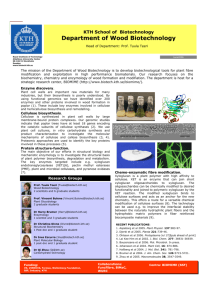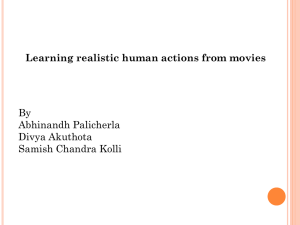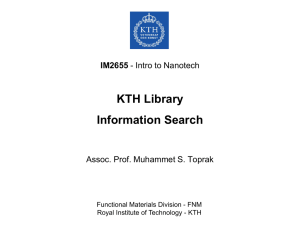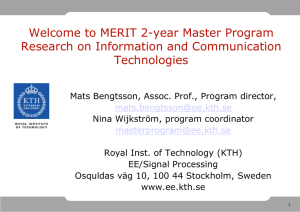Two PhD Positions in Experimental Astroparticle Physics
advertisement
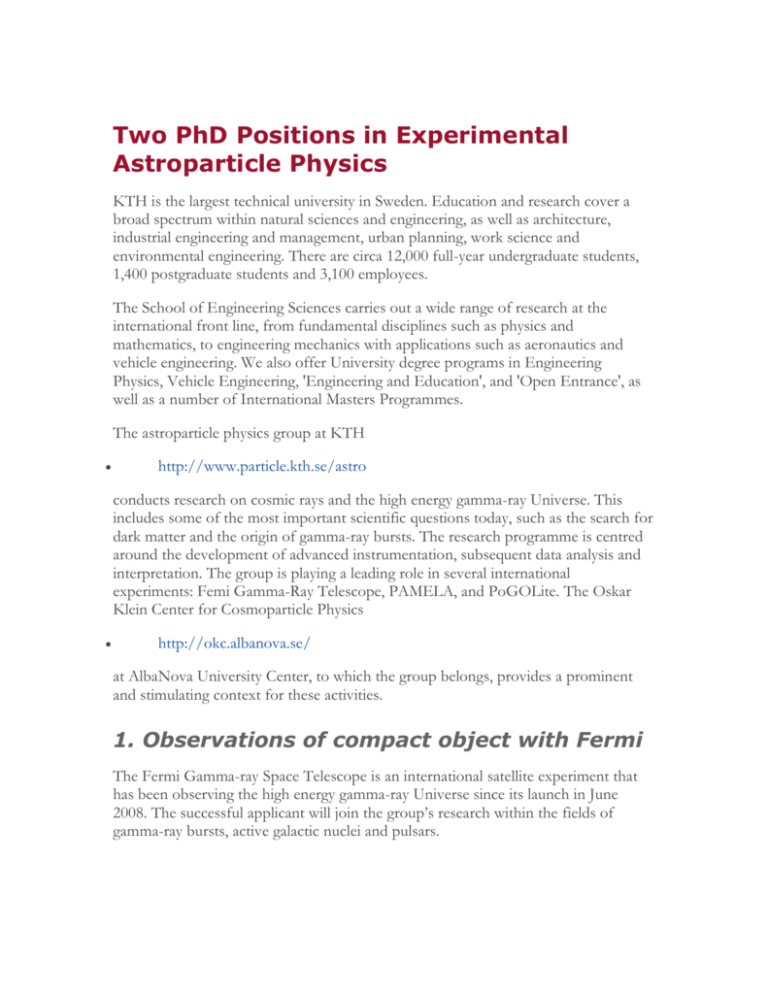
Two PhD Positions in Experimental Astroparticle Physics KTH is the largest technical university in Sweden. Education and research cover a broad spectrum within natural sciences and engineering, as well as architecture, industrial engineering and management, urban planning, work science and environmental engineering. There are circa 12,000 full-year undergraduate students, 1,400 postgraduate students and 3,100 employees. The School of Engineering Sciences carries out a wide range of research at the international front line, from fundamental disciplines such as physics and mathematics, to engineering mechanics with applications such as aeronautics and vehicle engineering. We also offer University degree programs in Engineering Physics, Vehicle Engineering, 'Engineering and Education', and 'Open Entrance', as well as a number of International Masters Programmes. The astroparticle physics group at KTH http://www.particle.kth.se/astro conducts research on cosmic rays and the high energy gamma-ray Universe. This includes some of the most important scientific questions today, such as the search for dark matter and the origin of gamma-ray bursts. The research programme is centred around the development of advanced instrumentation, subsequent data analysis and interpretation. The group is playing a leading role in several international experiments: Femi Gamma-Ray Telescope, PAMELA, and PoGOLite. The Oskar Klein Center for Cosmoparticle Physics http://okc.albanova.se/ at AlbaNova University Center, to which the group belongs, provides a prominent and stimulating context for these activities. 1. Observations of compact object with Fermi The Fermi Gamma-ray Space Telescope is an international satellite experiment that has been observing the high energy gamma-ray Universe since its launch in June 2008. The successful applicant will join the group’s research within the fields of gamma-ray bursts, active galactic nuclei and pulsars. 2. Observations of gamma-ray polarisation with PoGOLite PoGOLite is a balloon-borne instrument which will make pioneering observations of gamma-ray polarisation aimed at the study of energetic phenomena such as pulsars and black holes. PoGOLite is an international project which is led by KTH. The successful applicant will participate in hardware and observational preparations for the maiden balloon flight foreseen for August 2010, subsequent data analysis and future deployment to circumpolar flights. Qualifications Applicants should hold a Master of Science in Physics or Engineering Physics, including a solid background in physics, and demonstrate an interest in experimental and/or observational astrophysics. Experience in computer programming (both projects) and/or hardware development (PoGOLite project) is desirable. The projects require independent work in addition to collaborative skills and creative thinking. Since the projects are part of international collaborations good oral and written communication skills in English are required. The position is offered under the teaching assistant scheme (utbildningsbidrag) for the first two years of study. The remuneration associated with this appointment can be supplemented by a maximum of 15% paid departmental teaching duties. Full PhD studentships (doktorandtjänst) with an associated higher salary will be offered for the remaining years of study. To address its varied work, KTH aims to employ a diversity of talent and thus welcomes applicants who will add to the variety of the University, especially as concerns its gender structure. Employment Form of employment: Time limited. Start date: According to agreement. The salary follows the directions provided by KTH. Application Application deadline October 26, 2009 Employer’s reference number: S-2009-0756 Applications should be sent by email to: ankarloo@kth.se Write reference number S-2009-0756 in the email subject! Application shall include the following documents: 1. Personal statement of research interests, including any preference between the two available positions (pdf) 2. CV (pdf) 3. Academic transcripts (pdf) 4. Up to three letters of recommendation (pdf) 5. Supporting documentation, e. g., Master’s thesis (pdf) Contact Professor Mark Pearce (general enquiries, PoGOLite) +46 (0)8 5537 8183 pearce@particle.kth.se Docent Felix Ryde (Fermi) +46 (0)8 5537 8545 felix@particle.kth.se Trade union representative Rikard Lingström, SACO Phone: +46 8 790 8292 rlm@kth.se http://www.kth.se/aktuellt/2.1445/1.45564?l=en

